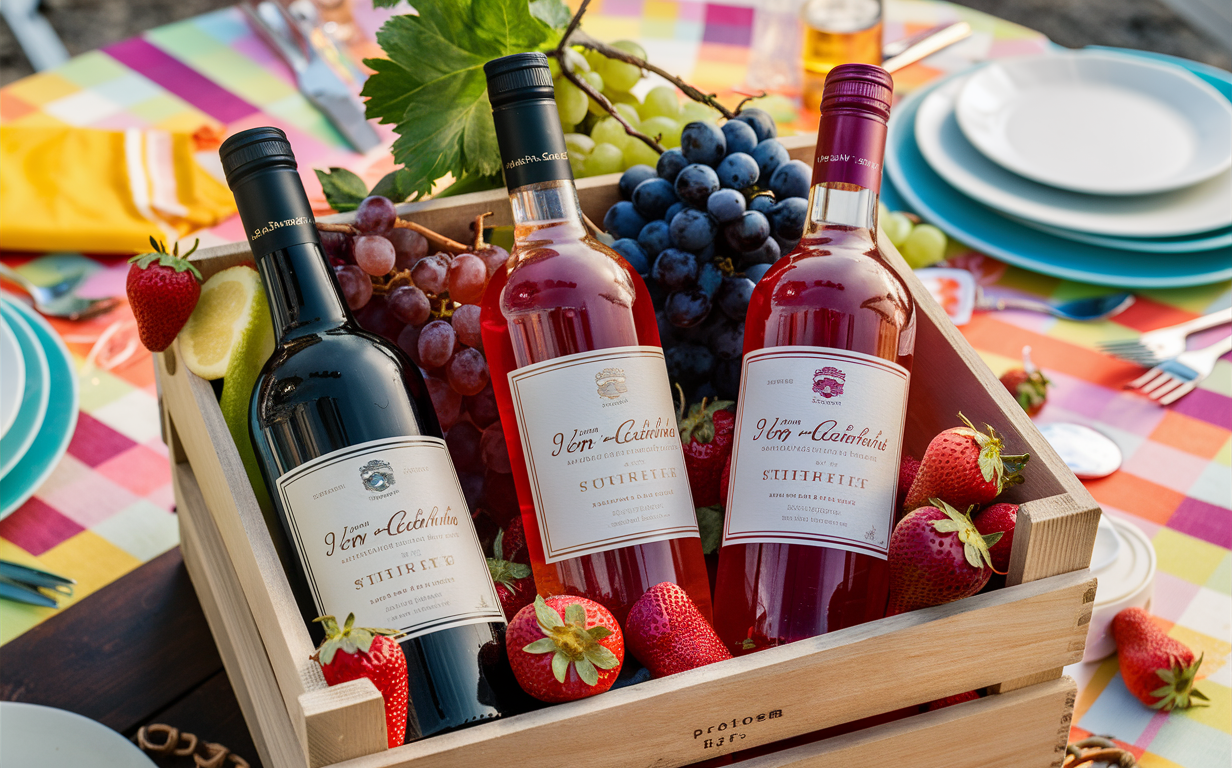Eco-Friendly Packaging for Non-Alcoholic Wines: 6 Top Solutions
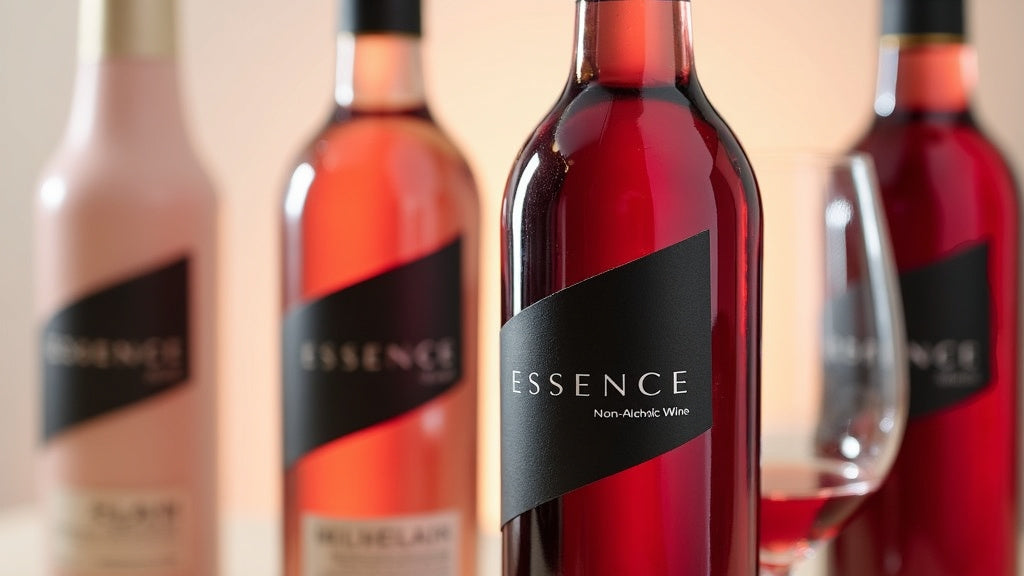
Non-alcoholic wines are becoming more popular. Let's look at some of the best eco-friendly packaging options for these alcohol-free drinks.
Key Takeaways
- Lightweight glass bottles reduce transportation emissions and material use
- Aluminum cans offer high recyclability and convenience
- Bag-in-box and pouches significantly reduce packaging waste
- Innovative solutions like paper bottles show promise for sustainability
- Consumer education is crucial for the adoption of eco-friendly packaging
1. Lightweight Glass Bottles
Traditional glass bottles are heavy, which increases transportation costs and carbon emissions. Lightweight glass bottles offer a more sustainable alternative. They use less material but still provide the classic wine bottle look and feel.
Some benefits of lightweight glass bottles include:
- Reduced weight (about 2 lbs when full compared to 2.65 lbs for standard bottles)
- Lower transportation costs and emissions
- Still recyclable like traditional glass
YOURS Non-Alcoholic Wines uses lightweight glass bottles for their products, maintaining a premium look while reducing environmental impact. These bottles not only decrease the carbon footprint associated with transportation but also require less energy to produce. In California, regulations require a minimum of 35% recycled content in glass bottles, further enhancing their sustainability.

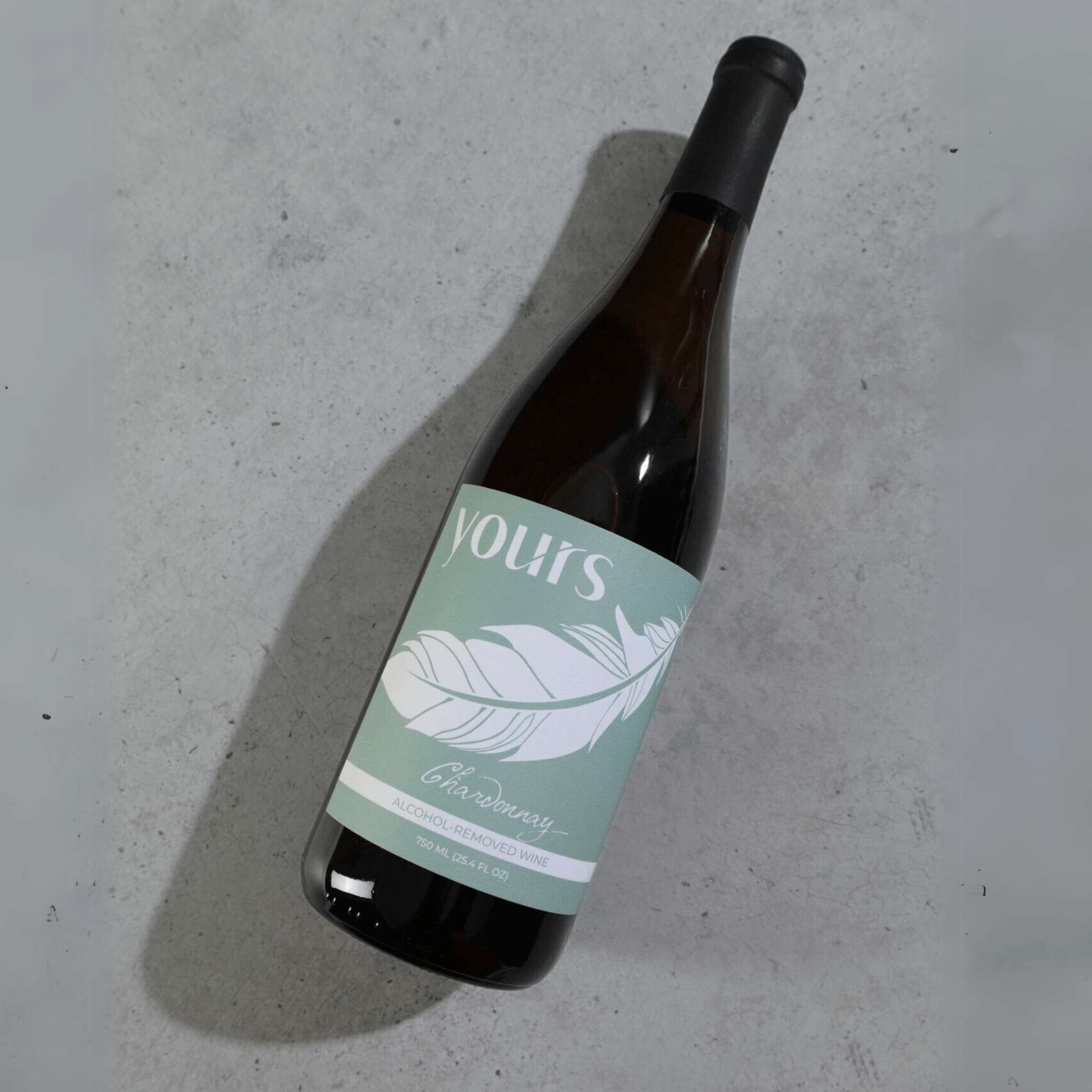
2. Aluminum Cans
Aluminum cans are gaining popularity in the wine industry, including for non-alcoholic options. They're lightweight, easily recyclable, and protect the wine from light and oxygen.
Key advantages of aluminum cans:
- High recycling rate (75% of all aluminum ever produced is still in use)
- Lighter than glass, reducing transportation emissions
- Convenient for outdoor events and single servings
While YOURS doesn't currently offer canned options, many non-alcoholic beer brands like Athletic Brewing Company have embraced this packaging. Aluminum cans are particularly effective at reducing the carbon footprint of beverages, as they are infinitely recyclable without loss of quality. Their lightweight nature contributes significantly to lowering transportation-related emissions, which account for about 13% of wine's overall carbon footprint.

3. Bag-in-Box and Pouches
Bag-in-box packaging and wine pouches are becoming more common for both alcoholic and non-alcoholic wines. These options significantly reduce packaging waste and are lighter than glass bottles.
Benefits of bag-in-box and pouches:
- Less packaging material used overall
- Lighter weight for reduced transportation emissions
- Keeps wine fresh for longer after opening
While not currently offered by YOURS, these packaging types are worth considering for future non-alcoholic wine products. Bag-in-box packaging can reduce the carbon footprint of wine by up to 40% compared to glass bottles. The extended shelf life after opening also helps reduce food waste, an important factor in overall sustainability.
4. Paper Bottles
Paper bottles are a new packaging solution for wines. They're made mostly from recycled paperboard with a thin plastic liner to hold the liquid.
Advantages of paper bottles:
- Significantly lighter than glass
- Made from renewable resources
- Lower carbon footprint in production and transportation
This technology is still new, but it could be a game-changer for eco-friendly wine packaging, including non-alcoholic options. Paper bottles can reduce the carbon footprint by up to 84% compared to glass bottles. However, their recyclability depends on local facilities' capabilities to separate the paper and plastic components.
5. PET Plastic Bottles
PET (polyethylene terephthalate) plastic bottles are another alternative to glass. They're lightweight, shatterproof, and recyclable.
Benefits of PET bottles for non-alcoholic wines:
- Much lighter than glass, reducing transportation emissions
- Safe for outdoor events where glass might be prohibited
- Recyclable in most areas
While plastic has its environmental challenges, PET bottles can be a good option when properly recycled. They have a lower production energy requirement compared to glass, with some estimates suggesting up to 77% less energy needed. However, their impact depends heavily on effective recycling systems and consumer participation.
6. Kegs for Bars and Restaurants
For bars and restaurants serving non-alcoholic wines, kegs can be an excellent eco-friendly option. They eliminate individual bottle waste and can be refilled many times.
Advantages of kegs:
- Drastically reduces packaging waste
- Lower transportation emissions per serving
- Keeps wine fresh for longer
While primarily for on-premise consumption, kegs represent a sustainable packaging solution for the non-alcoholic wine industry. A single keg can replace approximately 26 glass bottles, significantly reducing packaging waste and transportation emissions. This option is particularly effective for high-volume establishments committed to reducing their environmental impact.
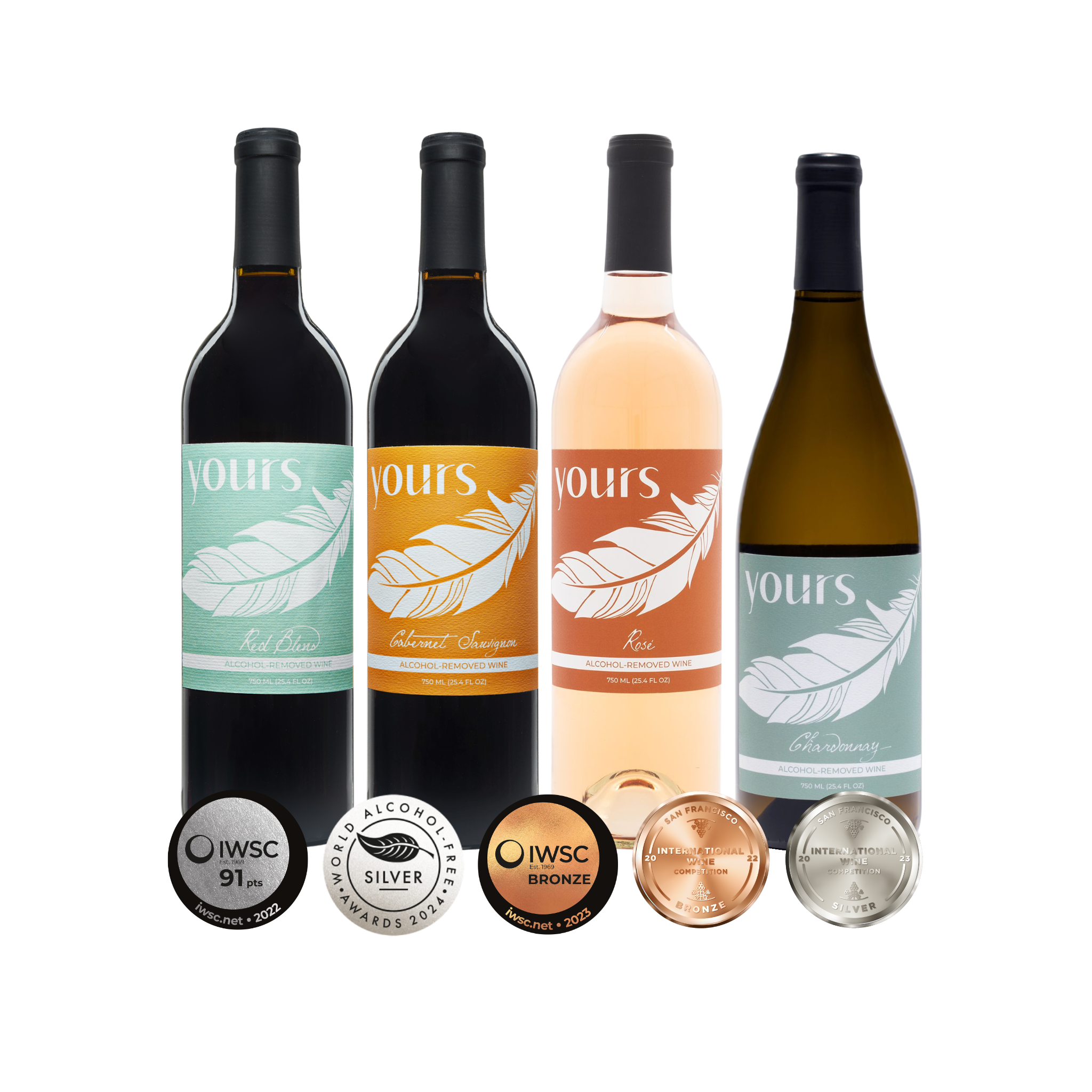
Consumer Education and Adoption
For eco-friendly packaging to succeed in the non-alcoholic wine market, consumer education is crucial. Brands need to clearly communicate the environmental benefits of alternative packaging and assure customers of product quality.
YOURS and other non-alcoholic wine brands can lead the way by:
- Providing clear information about packaging sustainability on product labels and websites
- Explaining how alternative packaging maintains wine quality
- Encouraging proper recycling or disposal of packaging materials
Consumer acceptance is key to the success of eco-friendly packaging initiatives. By highlighting the environmental benefits and addressing concerns about quality and taste, brands can help shift consumer perceptions. For example, educating consumers about the high recycling rate of aluminum cans (75%) can encourage more people to choose and properly recycle this packaging option.

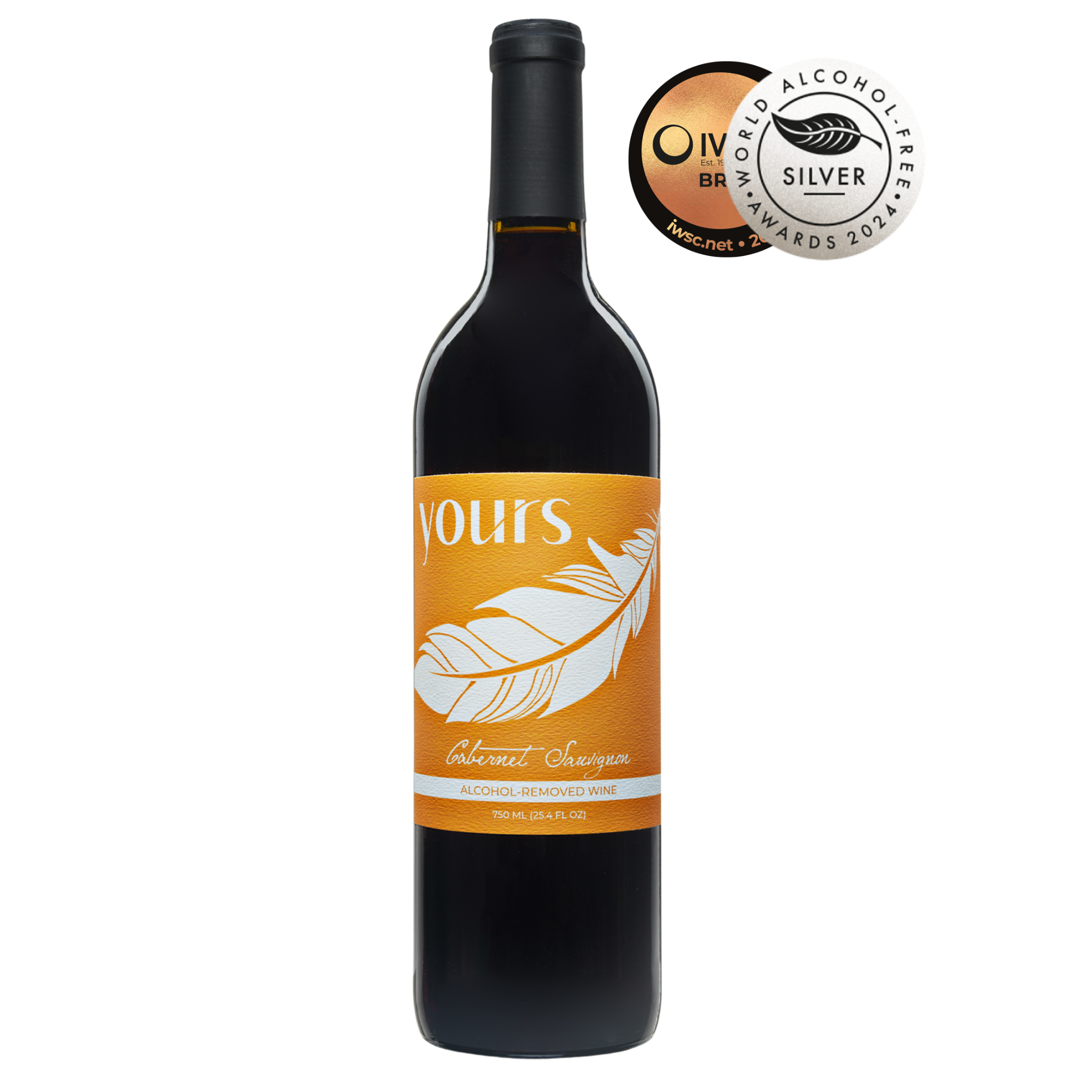
Key Factors in Eco-Friendly Wine Packaging
- Material Weight: Traditional glass bottles weigh ~2.65 lbs, lightweight options ~2 lbs
- Recyclability: California requires 35% recycled content in glass bottles
- Transportation Emissions: 29% of wine's carbon footprint from glass bottles, 13% from transportation
- Consumer Acceptance: Aluminum cans have a 75% recycling rate
- Production Energy: Glass bottle production requires significant energy
Conclusion
The non-alcoholic wine industry has a chance to lead in sustainable packaging. From lightweight glass to new materials like paper bottles, there are many eco-friendly options to explore. As brands like YOURS continue to innovate, we can expect to see more sustainable packaging solutions that maintain product quality while reducing environmental impact. By choosing eco-friendly packaging, non-alcoholic wine producers can appeal to environmentally conscious consumers and contribute to a more sustainable future for the beverage industry.
The choice of packaging material significantly influences the overall environmental impact of non-alcoholic wines. While glass bottles have been the traditional choice, alternatives like aluminum cans, bag-in-box, and innovative solutions like paper bottles offer substantial reductions in carbon footprint. For example, switching from traditional glass bottles to lightweight alternatives can reduce the packaging-related carbon footprint by up to 29%.
As the non-alcoholic wine market grows, it's crucial for producers to consider the entire lifecycle of their packaging choices. This includes not only the production and transportation phases but also end-of-life disposal or recycling. By prioritizing recyclable materials and designs that minimize waste, brands can significantly reduce their environmental impact.
Remember, the most eco-friendly choice is always the one that gets properly recycled or reused. No matter which packaging you choose for your non-alcoholic wine, be sure to dispose of it responsibly!

